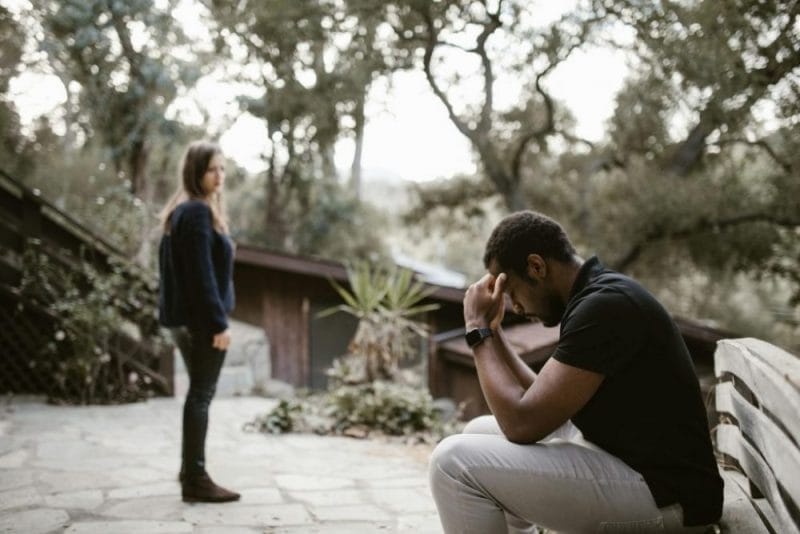Breaking up or divorcing someone you've shared a significant part of your life with can stir a cocktail of emotions, with loneliness often at the forefront. This feeling isn't just about being physically alone; it's the emotional void that comes from losing a partner, which can feel particularly overwhelming. This article will explore how to deal with loneliness after a breakup or divorce.
How to Deal with Loneliness After a Breakup: 7 Effective Ways
When a relationship ends, it's natural to grieve the companionship and routines you had. Whether it was watching a favorite TV show together or celebrating holidays, the absence of these shared moments can trigger loneliness. Here are ways to navigate these challenging times:

MART PRODUCTION | Pexels | When a relationship or marriage ends, the absence of shared moments can trigger loneliness.
1. Acknowledge Your Feelings
Recognizing that you're experiencing loneliness is the first step toward healing. It's completely normal to feel sad or lonely after a breakup, as these are typical reactions to the end of a significant relationship. Admitting these feelings to yourself can be a powerful step in the right direction. This acknowledgment allows you to process these emotions more fully. You pave the way for gradual healing and recovery by facing them head-on.
2. Give Time Some Time
Rushing into a new relationship to fill the void can lead to more complications and may hinder your healing. After a breakup, it's essential to take time to understand your feelings and heal at your own pace. Jumping too quickly into another relationship can mask unresolved issues. This period of solitude can be a valuable time for self-reflection and growth. Patience with yourself during this time is crucial as you rediscover your individual identity.
3. Find Support
Joining a support group can connect you with people who understand what you're going through. These groups offer comfort and insights that are invaluable during recovery. They provide a safe space to express feelings and share experiences. Learning how others cope with similar situations can give you new strategies for handling your own feelings. Support groups can be a cornerstone of your support system, offering empathy and encouragement.

Image by Freepik | Joining a support group can connect you with people who understand what you're going through.
4. Establish a New Routine
A breakup can disrupt your daily routine, making life seem a bit unanchored. Establishing a new routine can help bring some normalcy and structure back to your life. Start by integrating activities you enjoy or have wanted to try into your daily schedule. This new routine can foster a sense of progression and purpose. It’s about creating a new normal that supports your well-being and personal growth.
5. Exercise and Stay Active
Physical activity can boost endorphins, the chemicals in your brain that help you feel happier. Regular exercise can be a powerful tool for managing stress and elevating your mood. Activities like running, yoga, or dance classes can also help rebuild your self-esteem and confidence. Exercise not only benefits your physical health but also promotes mental clarity. Staying active is a proactive way to combat the feelings of loneliness and isolation.
6. Engage Socially
Isolation can amplify feelings of loneliness. Engaging with the community through volunteering or joining clubs can significantly improve your mood. These activities allow you to meet new people and can lead to meaningful friendships. Social interactions, even small ones, can significantly affect how you feel. Being part of a community provides a sense of belonging and can be incredibly uplifting.

Cottonbro studio | Pexels | If loneliness persists and affects your daily function, seeking professional advice might be necessary.
7. Self-care is Key
In the wake of a breakup, self-care is more important than ever. Taking time for activities you enjoy can be deeply therapeutic. These moments are crucial, whether it's reading, hiking, taking a bubble bath, or listening to music. They bring immediate joy and are vital in building a happier, healthier you. Prioritize self-care to ensure that you are treating yourself with kindness and compassion.
How Long Does Post-Breakup Loneliness Last?
The duration of loneliness varies widely among individuals. Several factors, including the depth of the relationship and your social support network, influence it. How you handle change also plays a significant role in this process. While some people may recover quickly, others might take longer to feel like themselves again. If loneliness persists and affects your daily function, seeking professional advice might be necessary.







